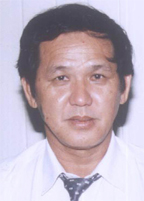– Justice Chang cites procedural flaw
The AFC elections petition case failed to make it past preliminary arguments in the High Court yesterday following a ruling by Chief Justice (ag) Ian Chang, which pointed to a procedural flaw in the petition.

He dismissed the case some three years after it was filed saying the party had breached a mandatory procedure by not filing the affidavit of service in a timely manner. The record shows the AFC filed the document ten months after the petition and according to the Chief Justice, the period which elapsed was simply too long.
Justice Chang considered the time elapsed for the filing as a fundamental defect of the petition and as a result he ruled against proceeding with the substantive matter.
The written ruling is expected to be released shortly, but it effectively upheld submissions raised by attorney-at-law Anil Nandlall that the opposition party had failed to follow procedure after the petition was filed. Nandlall had accused the AFC of flouting a number of procedural requirements and called on the court to declare the petition a nullity and or alternatively, strike it out.
“The law is the law,” Nandlall said yesterday shortly after the ruling. He said the Alliance for Change (AFC) failed to comply with the legal requirements and as a result, the petition was thrown out. He said the court had no inherent power to waive non-compliance and pointed to his earlier arguments about the court having a special jurisdiction.
Previously, Nandlall argued that the specific petition before Justice Chang invoked a special jurisdiction of the court as expressly created by Article 163 of the Constitution. He said that arguments may be raised about the breaches having no effect on the essential issues of the petition, but contended that in its special jurisdiction the court ought to consider the impact of such breaches.
“I had the authorities to support my arguments and they all pointed to the fact that non-compliance with the law is fatal,” Nandlall said. He said too that the ruling was clearly not going to be welcomed by the AFC.
AFC Chairman, Khemraj Ramjattan said yesterday that he was “very disappointed” with the ruling. “I have the utmost respect for Justice Chang, but it is sad that litigation can overturn the will of the people,” Ramjattan said.
According to him, the ballots reflect that the party won the Region Ten seat because “the people spoke”.
He added that the votes have now been overturned because of a technicality. Ramjattan, an attorney-at-law, said the party disagrees that the affidavit of service was so significant that it had to have been filed much earlier.
Ramjattan represented AFC leader Raphael Trotman in the case and he stressed that there was no deadline attached to the affidavit of service.
He said also that the party would have to decide whether to appeal the ruling. Further, he praised attorney-at-law Stephen Fraser and his legal team for “brilliantly” representing the AFC and also for presenting a case well prepared.
AFC member Walter Melville filed the petition on behalf of the party concerning the Region Ten parliamentary seat shortly after the 2006 general elections. The AFC has said publicly there had been no determination of the Region Ten seat following the 2006 elections though it possessed certified statements of poll showing that the party had won the seat.
Party leader Raphael Trotman said the party had won more votes than the People’s Progressive Party/Civic in Region Ten. He added that the seat should have therefore been assigned to the AFC, but the PPP rebutted saying that the AFC was straying from the truth on the issue. According to the PPP, the seat was fairly allocated.
Trotman had said that the Guyana Elections Commis-sion (GECOM) made an announcement that the PPP/C had won the seat following the elections and that Prime Minister Samuel Hinds was named as the elected PPP/C representative for the seat. He said too that Chairman of GECOM Dr Steve Surujbally then acknowledged that there was a miscalculation.
According to the party leader, the AFC filed its election petition soon after when it was made known that GECOM could not legally change any announcements that it had publicized, and that the result could only be ordered changed in a court of law.





